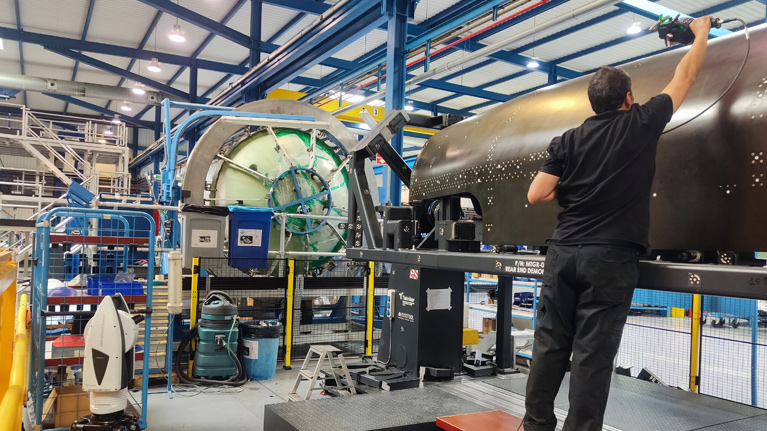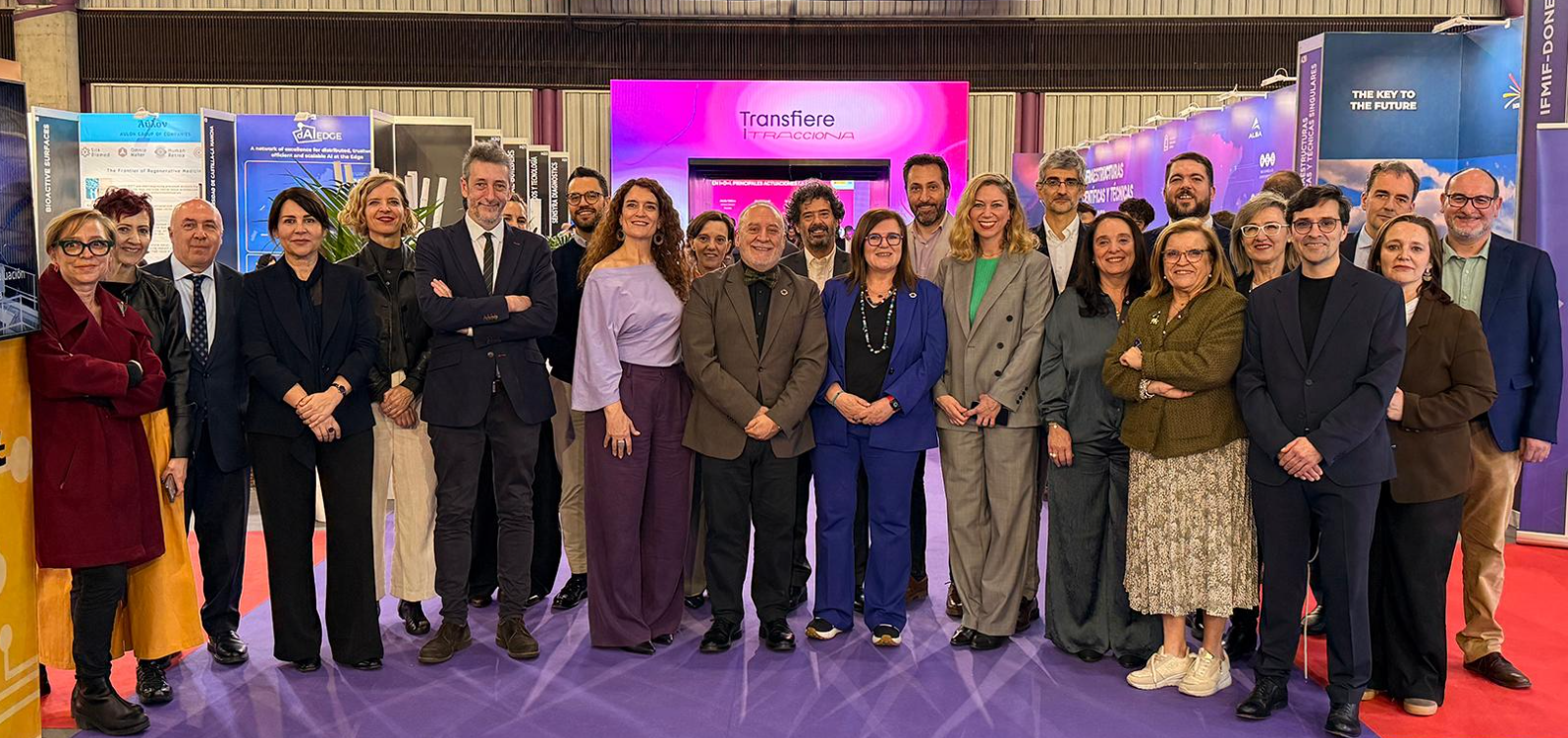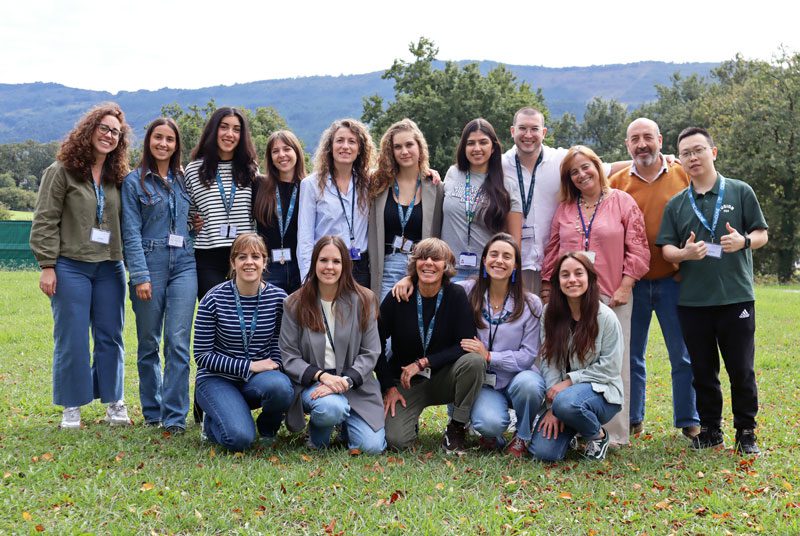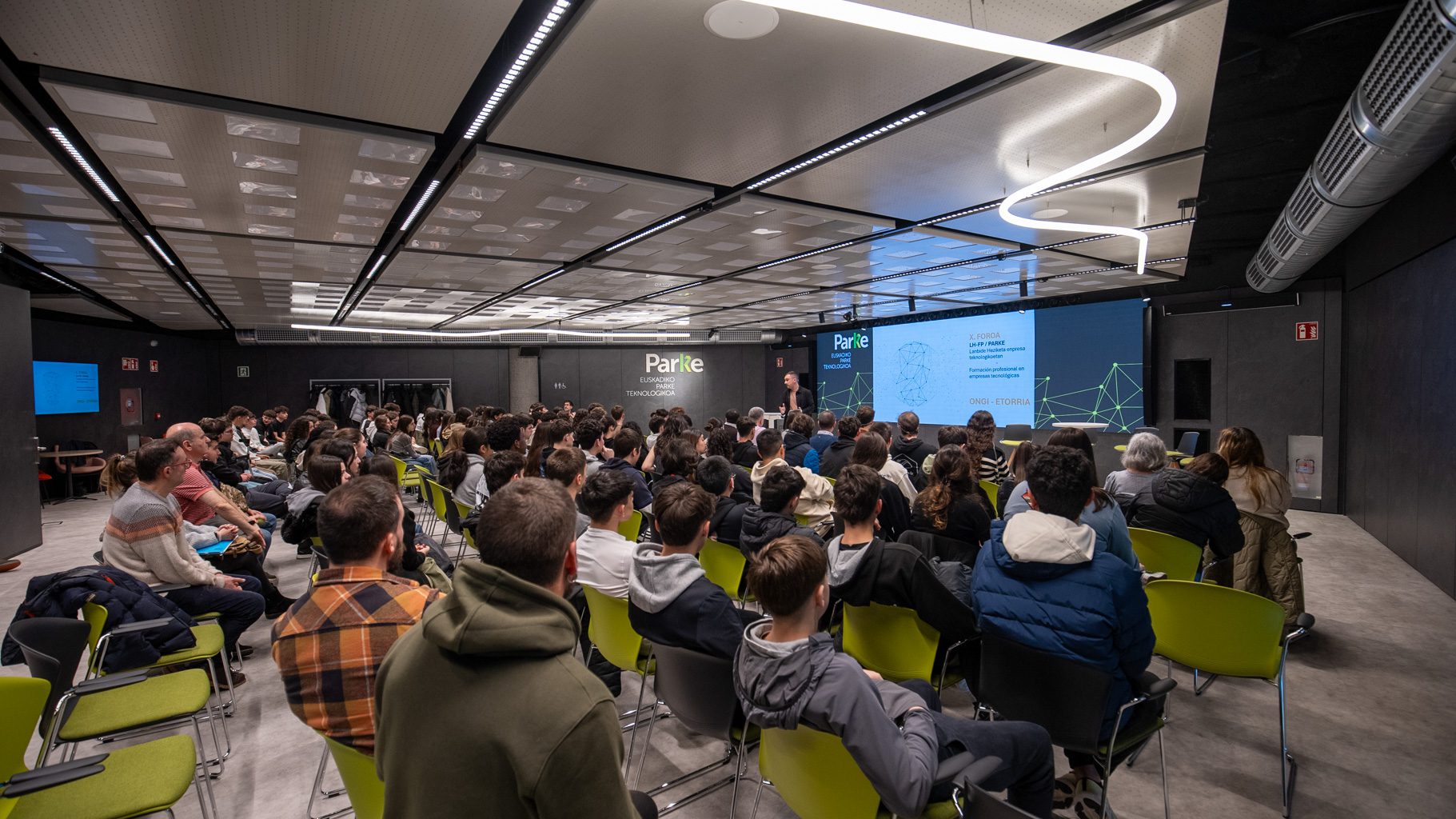SMARTER AND MORE SUSTAINABLE ZERO-DEFECT AERONAUTICAL PRODUCTION

Tekniker has supervised the development of an innovative demonstrator within the framework of the European Innotool project used to assemble aeronautical structures
New sensoring, metrology or additive manufacturing technologies are radically changing conventional industrial production processes. Once implemented in the aeronautical sector, it will be possible to progress towards highly collaborative smart environments and improve the levels of precision, safety and sustainability of assembly work.
It is within this context that Tekniker has developed an innovative demonstrator featuring cutting-edge materials within the framework of the European Innotool project to assemble aeronautical structures.
The work of Tekniker has focused on designing a number of tools that will allow to assemble the rear section of the fuselage, a structure called Advanced Rear End that is used on commercial aircraft to meet short, medium and long distance air transport needs.
The technology centre’s team has applied its expertise to develop mechatronic systems supported by metrological and sensor technologies to produce cutting-edge equipment. The prototype has also demonstrated that it is possible to automate these processes and achieve a zero-defect production that is smarter and more sustainable.
Tooling equipped with sensors and simulations
The prototype designed and manufactured by Tekniker has been equipped with smart sensors that facilitate assembly work and allow for accurate and safe movements to minimise efforts and risks whilst components handled. The sensors are also used to ensure that all the components to be mounted are positioned correctly. Specifically, these are vision, force and displacement sensors that assist assemblers through specific software interfaces. This network of sensors is supplemented by an external metrology frame that steers machine movements with a high degree of precision.
Thanks to this set of embedded tools, it is not only possible to improve the accuracy of the assembly process and speed it up, but to also continuously monitor and control the different stages to be covered when aeronautical components are assembled. This produces cost reductions and savings in terms of materials and energy according to the goals set by the EU in terms of sustainable manufacturing practices.
Moreover, and within the framework of the Innotool (INNOvative TOOling design) initiative, the Aitiip technology centre has played an outstanding leadership role subsequent to producing a manufacturing demonstrator for thermoplastic components that uses thermal shaping and additive manufacturing techniques. Tekniker has collaborated in the design and development of new strategies aimed at enhancing thermal control in shaping operations carried out on large aeronautical components.
The two demonstrators developed under the European project funded by the Clean Sky 2 programme of the European Commission will improve the production processes of leading companies such as Aernnova in this sector.




